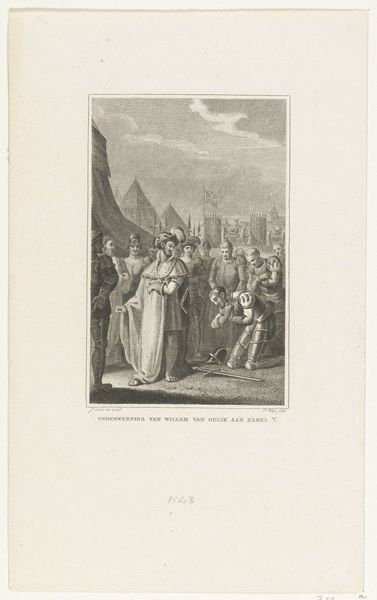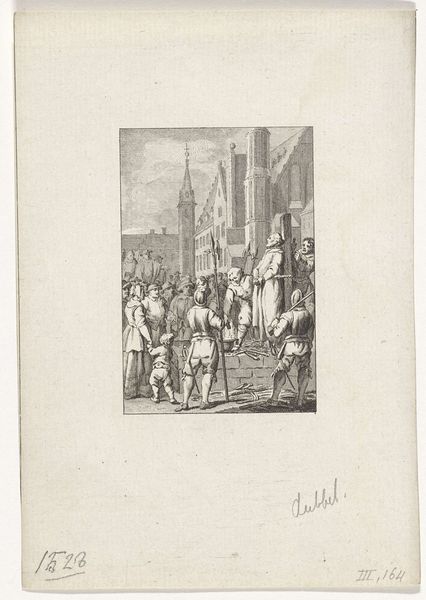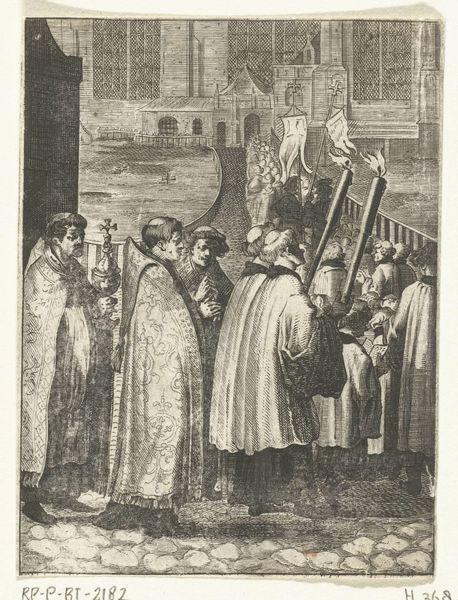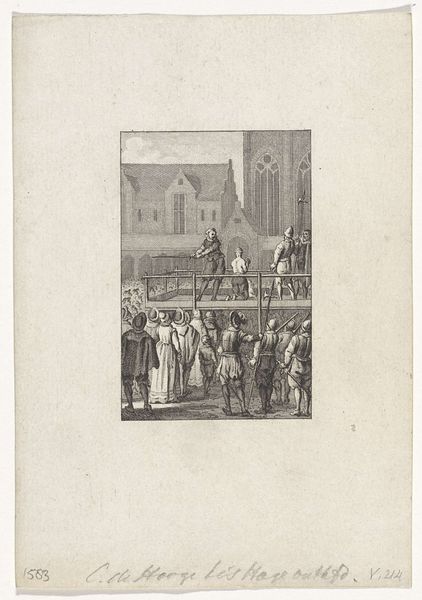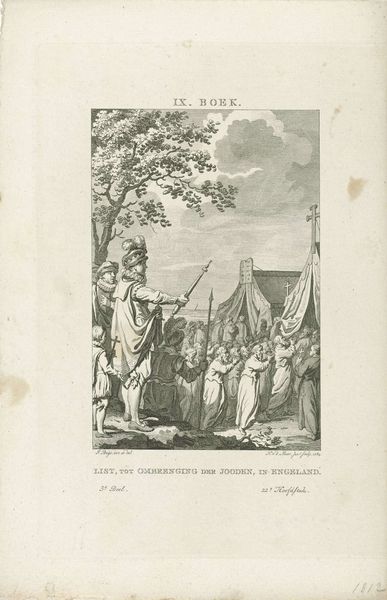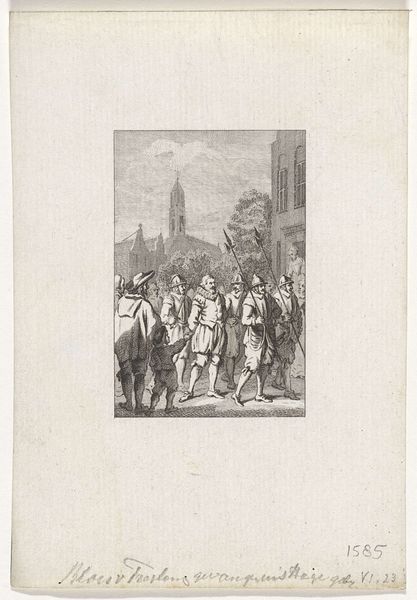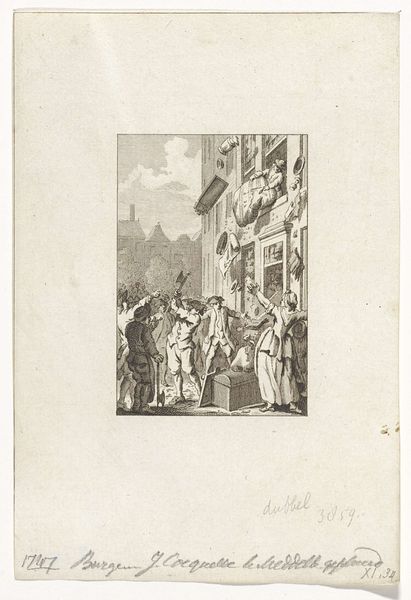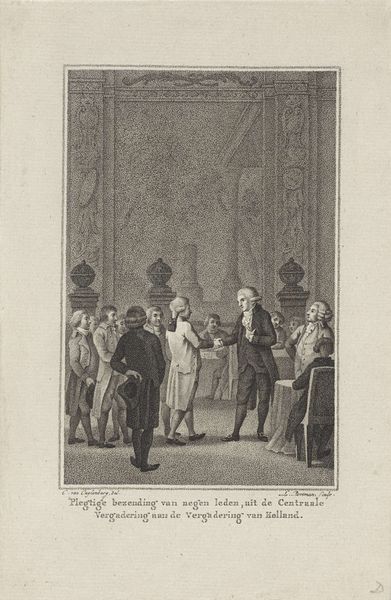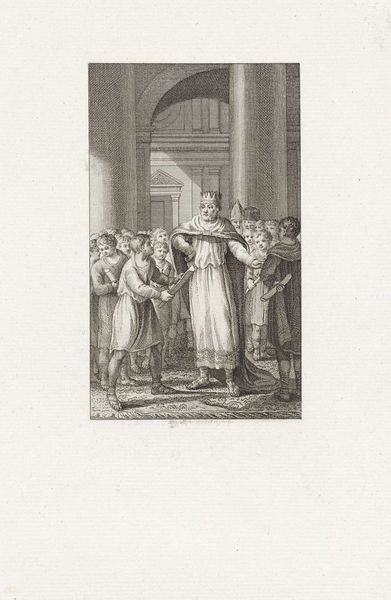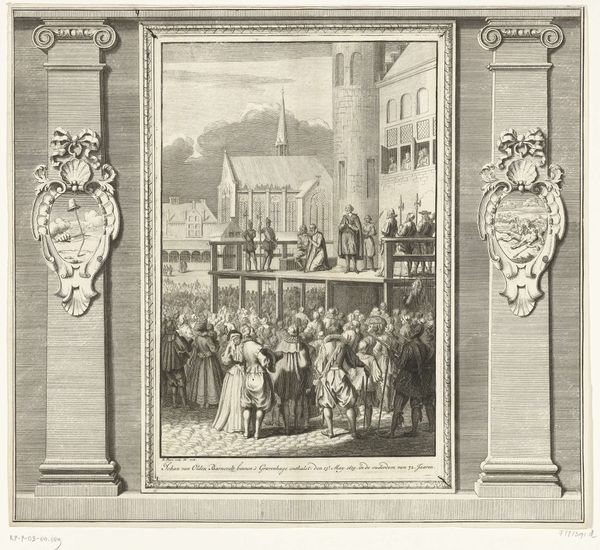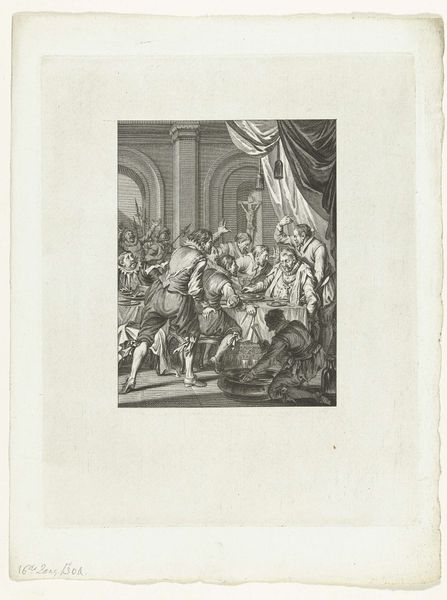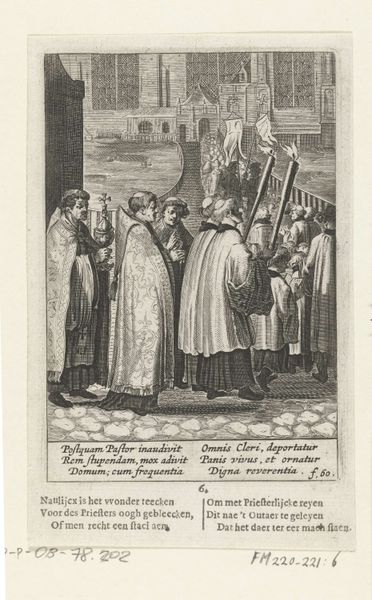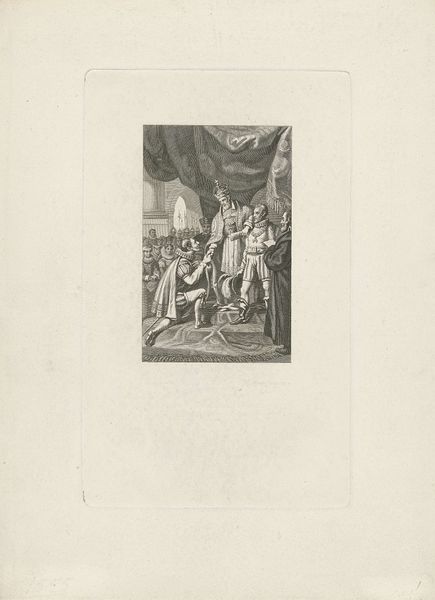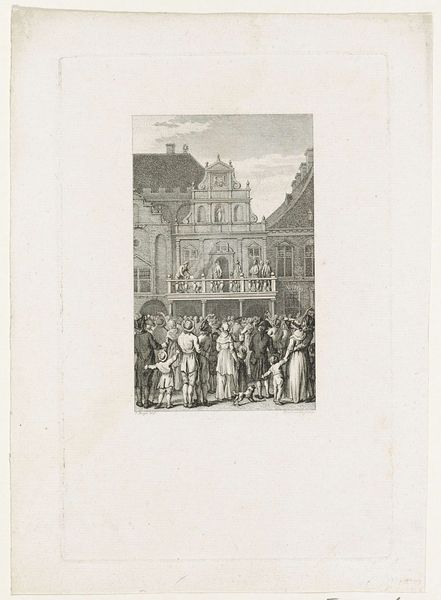
Willem II hertog van Gelre onderwerpt zich aan Karel V, 1543 1823 - 1829
0:00
0:00
philippusvelijn
Rijksmuseum
Dimensions: height 227 mm, width 150 mm
Copyright: Rijks Museum: Open Domain
This engraving by Philippus Velijn depicts Willem II, Duke of Guelders, submitting to Charles V in 1543. Note the visual weight given to the act of kneeling, a potent symbol of submission and supplication. The act of kneeling echoes through centuries of art, from ancient Egyptian depictions of pharaohs dominating their enemies to medieval images of knights pledging fealty. In Christian iconography, kneeling signifies prayer and humility before God. Consider how the context alters the meaning: is it willing devotion or forced subjugation? Here, the fallen sword at Willem's feet amplifies the scene’s gravity. Compare this with images of saints and martyrs, where discarded weapons symbolize a rejection of earthly power in favor of spiritual strength. Such symbols resonate within our collective memory, triggering subconscious associations with power, vulnerability, and surrender. We see this image as a tableau of defeat, but also perhaps of future reconciliation. These motifs continually resurface, transformed, yet forever tethered to their origins.
Comments
No comments
Be the first to comment and join the conversation on the ultimate creative platform.
